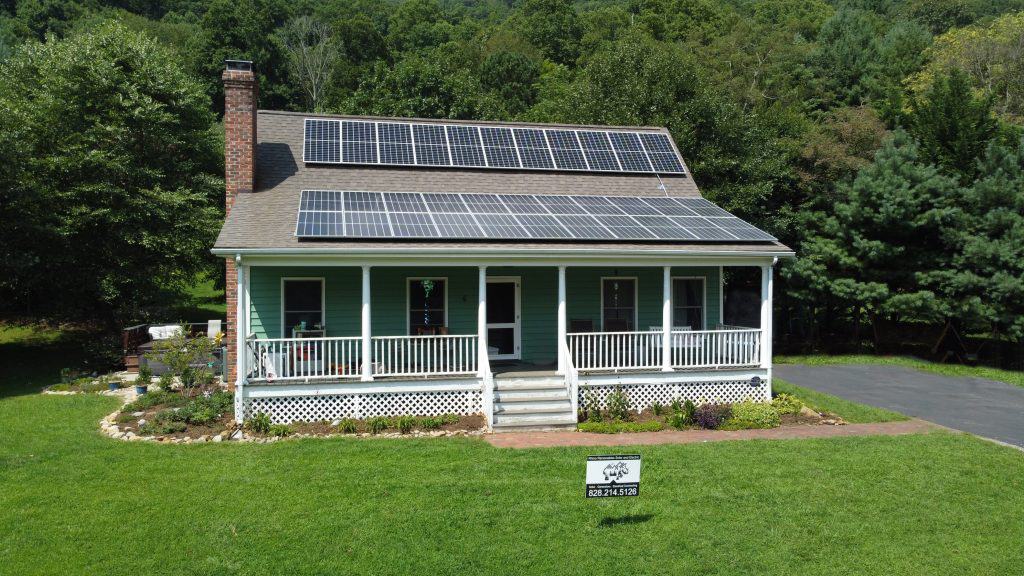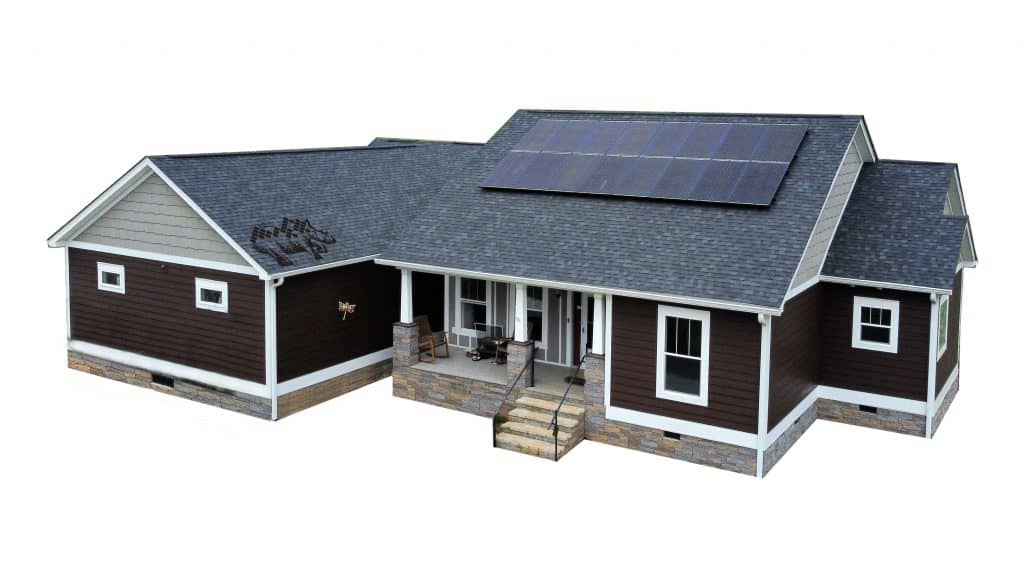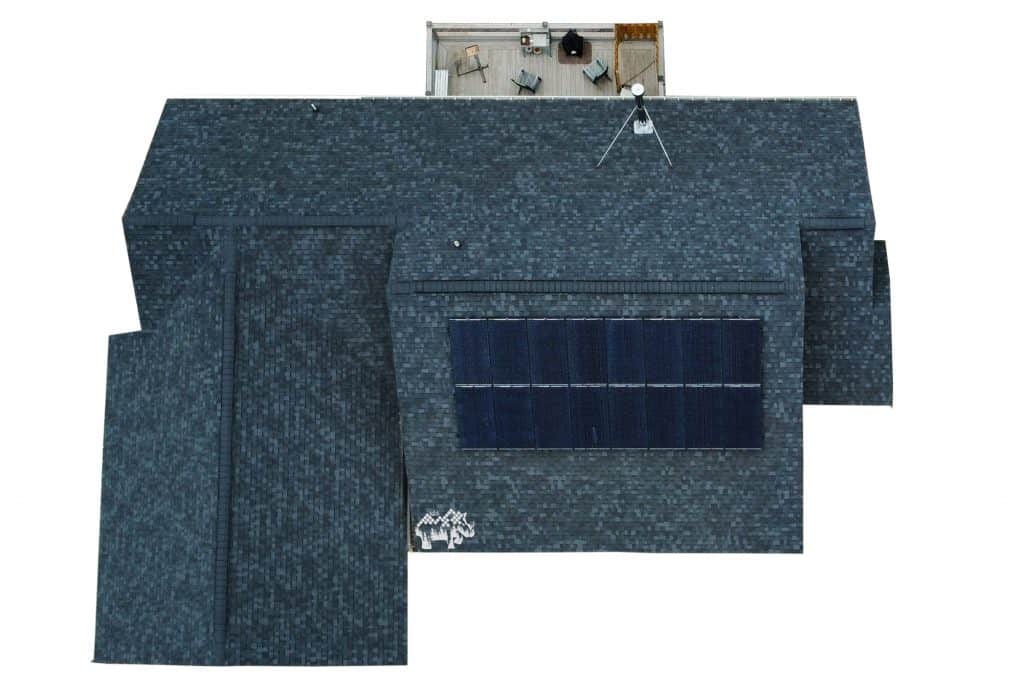Buying a House with Solar Panels? What to Know
/in TipsWritten by Rachel Vergara
Buying a home can be daunting, but what if you are buying a home with solar panels? From inspections to maintenance to energy savings, here’s what you need to know.

What you Should Ask the Seller
To get started, there are a few questions to ask the seller of your potential new home. These questions will give you the insight you may need in order to make an informed decision on whether or not the solar system will work for you and your goals.
Ask About the Installation
A few questions to ask to get an early idea of how much money you may need to spend on repairs and service down the line based on warranties and panel efficiency are:
- Who Installed the system?
- When was the system installed?
Ask About the Setup
Get a good idea of how the solar array was set up in order to better understand what type of system you are dealing with by asking these questions:
- What type of Panels does it use?
- Is it connected to the power grid? Completely off-grid? Or a hybrid?
- What type of Inverters does it use?
Ask About Paperwork
Getting this specific paperwork will give you insight into what services and repairs the system will need in the future, how much time is left on warranties, and any previous/current issues with the system.
- Twelve months of Utility Bills
- Twelve months of Monitoring Reports
- Warranty Information
- Service Dates
- Repair History
- Make & Model Information on Panels, Inverters, Racking, and Batteries
Next Steps
After asking the necessary base questions, it’s time to look further into the solar array.
Should you check them yourself or hire a professional?
A professional is always recommended when it comes to solar panel inspection, however, some DIY steps can be done in order to get the ball rolling with getting a good picture of the energy usage and efficiency of your potential new home.
The first step is to ask the seller for 12 months of utility bills as well as 12 months of monitoring reports from the solar system that is installed. Each inverter has an online monitoring system that tracks production. The numbers provided by these reports can give you insight into how much the system will produce in a year’s time vs the amount of electricity the home is using.
If further information is required and you’ve decided a professional is required then it’s time to move on to hiring an inspector. Inspections for solar panels are not usually included in a Home Inspection and will need to be scheduled. Give us a call at Rhino Renewables at (828) 417-7060) and we can schedule an appointment with the inspector.
Ready to Schedule an Inspection?
Give us a call at (828) 417-7060 and we will get you set up with an Inspector Today!
What to have checked before buying a home with Solar
Other Aspects to Keep In Mind
Grid-Tied
Grid-tied systems are connected directly to the electricity grid and do not have a battery backup. Therefore, inspecting a grid-tied solar array is as easy as accessing the monitoring reports and comparing them to the Duke utility bills.
Off-Grid
A completely Off-Grid system means having a battery backup with access to power even if the grid goes down, it’s a cloudy day, or even at night. With this comes more attention to the batteries. Because power is not sold back to the grid with an Off-Grid system, batteries may be susceptible to damages from over or undercharging. This also means that batteries are solely powering the entire home. Getting access to the Battery Monitoring System, or BMO will allow inspection of the efficiency of the battery. Take into consideration the production age, quality of the batteries installed, and what loads do the batteries have to power. This will all factor into the overall quality of the battery life.
Hybrid
A Hybrid is a combination of both a Grid-Tied and Off-Grid system. Solar power is stored in batteries, just like an Off-Grid System, but using the BMO, excess power is sold back to the grid, just like a Grid-Tied System. A careful look into the Battery Monitoring System is necessary as over or undercharging of the batteries can cause damage to them.
US-Made vs Foreign-Made
Country of manufacturing is important to many. The main similarity between US-manufactured and foreign-manufactured solar panels is that the technology is the same throughout. Warranties offered, the monitoring system, customer service, and the length of time the company has been in business must be considered when addressing the continued maintenance of the system.
Location of the PV System
Solar panels need room and space to absorb solar energy. This means that the panels are to be clear and unobstructed from the shade that may come from trees, buildings, and the position of the panels themselves. Plant growth and debris will also not allow the panels to absorb the maximum amount of energy.
Solar panels are exposed to the elements, therefore, will be susceptible to many potential damage risks. The area surrounding the panels should be clear of possible falling branches or dead trees that may fall and damage the panels. Debris around the home that may be swept up during a storm should be removed.
Read Up On Other Factors That Impact Solar Panel Performance Here.


Warranties
Before buying a home with solar panels, it is essential to know what you are signing up for and what types of guarantees and warranties you are entitled to. Ask the seller or get into contact with the original contractor for any warranty information.
Product Warranties & Production Guarantees
Solar systems usually come with two types of coverage, a Product Warranty and Production Warranty or a Production Guarantee.
The Product Warranty covers the panel itself and will protect against problems that arise due to manufacturing defects, premature wear, and tear, and uncontrollable issues that may be caused by the environment.
The Production Warranty or the Production Guarantee ensures that as solar panels age, they naturally change in their efficiency and continue to produce an acceptable output level.
Workmanship Warranty
A workmanship warranty covers the workmanship on the project while the products themselves are warrantied by the manufacturer. Most Workmanship warranties vary from 3-10 years. Here at Rhino Renewables, we carry a 10-year workmanship warranty. Reach out to the contractor to get information on whether or not the warranty transfers ownership. Currently, at Rhino Renewables, our warranty does not transfer over the workmanship warranty.
Warranty Periods
Each piece of the solar installation will have its own warranty with its own warranty period. It is important to ask the seller which products the home has as well as get in contact with the contractor to learn more about each product’s warranty period.
Here’s a breakdown of the typical warranty periods:
- Product warranties are typically 12 years, while almost all production guarantees are 25 years.
- Inverters are typically warrantied for 5 years, 10 years, 12 years, 20 years, or 25 years. This will depend heavily on the inverter manufacturer and product type.
- Most racking manufacturers warranty their parts for 25 years.
- Usual Workmanship warranties range from 3-10 years.
Are Warranties Transferable?
In most cases, warranties are transferable to the new homeowner, however, it is recommended that the buyer gets in touch with the contractor to learn more about warranty transfers.
What if the Solar Panels Have Been Leased?
It is very rare for Solar Panels to be leased in the Western North Carolina area. Leasing solar panels tend to be expensive for the customer as well as a liability to the company that is leasing out the panels. When buying a home with leased solar panels, it’s crucial to get a copy of the lease agreement with any leans on the property. Reach out to the leasing company and ask for system updates and requirements on the leased panels. Some red flags can include leans on the home and monthly payments that are more expensive than they would normally be.

